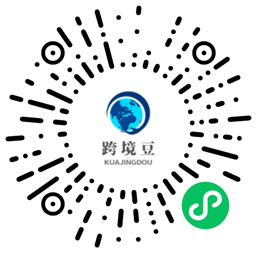中韩自贸区来了:农产品餐饮说YES,化妆品说NO

韩国政府和执政党于11月17日召开紧急会议,同意批准于11月26日召开的议会会议上通过中韩自贸协定。与以往中国签订的自贸协定不同,中韩自贸协定可谓“高大上”。
据了解,除了传统的货物贸易、服务贸易和投资协定之外,该协定还涉及“21世纪新议题”,包括政府采购、竞争政策、电子商务和环境等内容,这些是以往自贸协定中没有的,所以它的版本更高。
中国社科院亚太与全球战略研究院国际经济关系研究室主任赵江林表示,除了涉及以往没有的新议题之外,在传统的投资、服务贸易方面,中韩自贸协定的水平也提高了,这个升级版的自贸协定更贴近发达国家标准。同时,它涉及的领域也有很多,包括货物贸易、服务贸易、投资、金融、电信、环境、电子商务等17个领域。当然,双方还有一些敏感领域没有放开或逐渐放开。从双方降税安排看,中方的高度敏感产品主要是汽车、机械、化工、钢铁、电子等制造业领域的一些中高端产品,韩方的高度敏感产品主要集中在农水、纺织、汽车等领域。
值得注意的是,对于中国企业来说,不同行业对中韩自贸区的反应也不尽相同,可谓有人欢喜有人忧。
卖出去和买进来都划算
陈晓梅一家住在山东寿光,这里是有名的大葱产地,去年寿光大葱产量达到15万吨,其中一部分出口到日本、韩国等国家。
听说中韩自贸区设立后一部分农产品将会降低关税,陈晓梅很兴奋:“韩国人的饮食离不开大葱,所以每年寿光大葱有很多出口到韩国。如果大葱的关税降低,肯定会有更多的葱卖到韩国去。”
据中华工商时报记者了解,在此次中韩关贸协定中,大米、辣椒、大蒜、洋葱以及苹果等重要农副产品不在减免关税的行列,因此,陈晓梅家的大葱会不会以更优惠的价格在韩国销售还要耐心的等待。
希望自贸协定尽快落地的不仅是农产品行业,很多餐饮店也在翘首期盼。“我们这家烤肉店很多厨具和原材料都是韩国进口的,如果关税降低我们的成本就会降低。”在望京的某家韩式烤肉店老板指着一个石锅向记者介绍,“这些锅是做韩式料理的必备之物,也是消耗品,我们店都是从韩国进口的,只有用专业的厨具才能做出地道的韩国美食。如果自贸协定落实,我每年用在器材采购的成本大约能节约10%左右。”
而食材也是韩国料理的关键因素之一,“辣椒酱、泡菜这些消耗量很大的食材,如果我从韩国进口那么成本很高,客人也不一定能接受。所以现在我店里都是聘请了韩国的师傅到中国来,在中国制作这些产品。”但是,店老板仍然不满意:“毕竟中国很多原材料和韩国是由区别的,制作出来的泡菜口味还是有差别的。如果取消关税后,泡菜、海苔这些产品的采购成本和我现在雇佣师傅制作的成本相当,我肯定是要选择进口的,因为我想在中国做地道的韩国料理。”
此外,国务院发展研究中心对外经济部主任许宏强认为,除了一些企业,中韩自贸协定还将惠及两国消费者。比如,一些家电产品、日用化工品、服装、鞋帽等赴韩旅游购物或韩国代购的热门产品将更加便宜。对韩国消费者来说,也将以更加优惠的价格买到来自中国的农水产品、服装和鞋类、家电等产品。
中小工业企业或将受益
对中小工业企业而言,借助中韩自贸协定在韩国投资也将带来更多增值效益。如一家中国企业2013年在韩国注册成立,主要业务是把中国生产的太阳能电池板推介到韩国各大太阳能发电站。中韩自贸协定生效后,公司可以减免8%的关税,而且由于韩国与美国、欧盟等52个国家和地区签署了自贸协定,中国企业可以借此进入世界市场,绕开贸易壁垒。
在货物贸易方面,中国最终将有91%的产品对韩国取消关税,覆盖自韩国进口额的85%。同时,韩国最终将有92%的产品对中国取消关税,覆盖自中国进口额的91%。中国的纺织服装、有色金属、钢铁、机械设备等行业企业,可以进一步降低对韩国出口成本,提高在韩国市场份额。韩国的机械设备、化工、液晶显示等行业企业,也将更好地分享中国的广阔商机。
据了解,今年在韩国注册的中国企业就多达255家。某民企的理事在此前在接受媒体采访时就表示:“韩国也是整个贸易体的中转站,通过它也可以辐射到,欧盟,甚至美国或者更大的市场,就说我们也通过这个跳板,我相信我们公司也会走得更远。”
除了直接互惠中韩经济以外,中韩自贸区也将对周边地区产生巨大影响,最为直接的是日本和中国台湾。2013年因为日本不愿意开放诸多项目的关税导致中日韩自贸区谈判停滞,此次中韩自贸区谈判的达成,将有助于“倒逼”日本重回谈判桌。而压力最大的则是中国台湾的一些企业。去年11月,台湾鸿海集团董事长郭台铭在接受电视媒体采访时就忧心忡忡地表示:“客户已经拿中韩FTA(Free Trade Agreement自由贸易协定)的条件和我们公司谈判,客户永远看七八年后的事,台湾没时间了。”
从产品定位来看,韩国和中国台湾货品贸易结构相近程度高达77%,中国台湾的钢铁、汽车等八大产业都将因中韩FTA生效而受冲击。
化妆品企业准备迎接的竞争
同样感受到压力的还有中国的一些化妆品企业。听到中韩自贸协定,很多消费者的第一反应就是可以花更少的价钱买到韩国化妆品。而中国的化妆品企业似乎并不愿意应对这样的变局。
“韩国化妆品以针对性强著名,尤其是最近几年,韩国化妆品十分受欢迎。”做了近10年化妆品生意的项先生直言自贸协定签署后中国化妆品企业将面临很大压力,“国内化妆品市场目前呈现的是国产品牌、欧美品牌、日韩品牌三足鼎立的态势,如果韩国产品因为降低关税而降价,那么现在的平衡将被打破,国产品牌受挤压的可能性比较大。”
项先生的担忧并不是没有道理的,此前有媒体报道称,在中韩自贸协定签署后,一些韩国化妆品企业开始分析中国人的皮肤和各地区的体质,开发针对中国市场的产品并开始小规模生产,为打入中国市场做准备。在中韩自贸协定中有对化妆品、日常用品等的关税减免政策,10年之内,每年有价值730亿美元的韩国对华出口商品可以免除关税,很多韩国中小企业希望能从中受益。一家企业的负责人表示:“中韩自贸协定一旦生效,我们就会扩大研发团队和生产规模,力争更多地占领中国市场份额。”
在自贸区红利下,国内很多女性对于购买优惠的韩国化妆品、服装等抱有很大期待,但是在自贸协定中有一个章节叫做“例外”。
在中韩自贸协定中,香水、口红、眼霜等大部分化妆品都被列为例外,包括防晒霜等在内的护肤品将有部分降税,5年内税率将从目前的6.5%降至5.2%,降幅20%。在服装、鞋帽方面,许多产品的关税将在10-20年内从目前的约15%降为零。根据商务部新闻发言人沈丹阳的介绍,在家电产品方面,电冰箱、电饭锅、电炒锅、电烤箱、电磁炉、微波炉以及一些按摩仪、美容仪等将在10年内取消目前15%的关税。
“未来,中韩自贸将是必然趋势,所以面对竞争,我们必须要积极应对。”项先生建议,国内化妆品企业不应只在模仿上面下功夫,“很多国产品牌已经开始行动,开始自主研发,走更精细化的路线,但是仍然有一些企业停步不前。在韩国化妆品更低价竞争的时候,整个产业的优胜劣汰可能速度会更快,没有科技含量一味跟风模仿的企业可能会最先倒下。”






